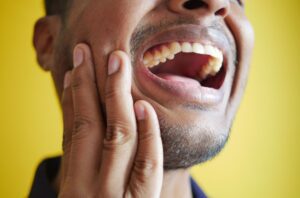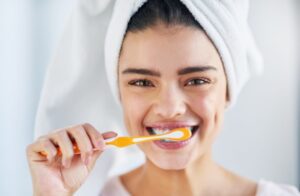Children’s Dental Care
The high levels of tooth decay in children are shocking. Due to sugar-laden diets and parents’ complacency, children as young as three years old are receiving more invasive dental procedures. In the most extreme cases, all 20 primary teeth are being extracted due to extensive decay.
These staggering numbers and health risks are on the rise. In fact, the latest figures show that pediatric dental disease is the No. 1 chronic childhood illness.
Pediatric Oral Health Crisis in the United States
Research shows that an estimated 17 million American children go without dental care each year. Only 1.5 percent of children have had the recommended dental visit by their first birthday and more than 25 percent of children aged 2 to 5 suffer from dental decay. Unfortunately the concern is not just about children’s teeth either. There are many other health and developmental problems associated with poor dental care.
Decayed, injured or poorly developed teeth may result in:
- Problems eating and speaking
- Lack of self-confidence
- Dangerous infections
- Emergency surgeries
- Dental pain
When it comes to dental care for children, many parents have a lot of questions. When should I start brushing my child’s teeth? At what age should I schedule their first visit to the dentist? Do I really need to brush my kid’s teeth if they will just fall out anyway? They know that preventing decay and cavities is important but are just not sure how much dental care their children need. Below are just a few tips on the best ways to prevent pediatric dental disease, organized by age.
1. Newborns
Many parents do not realize that their child needs dental care even before teeth begin to appear. At birth, babies already have 20 primary teeth fully formed in the jaw. To prevent the buildup of harmful bacteria, simply use a warm washcloth and wipe your infant’s gums after feedings. Once teeth begin to grow, parents should switch to an infant toothbrush and fluoride-free toothpaste for dental care. Also, children should have an introductory visit to the dentist before their first birthday.
2. Toddlers
Usually around age two, children can switch to fluoride toothpaste. As long as they brush under supervision and know how to spit while brushing then fluoride toothpaste is safe to use. Also, do not put babies to bed with a bottle of juice or milk. Though it may help soothe children, it can lead to bottle rot when sugars remain on the child’s teeth for hours. Pitting and discoloration of front teeth are often signs of bottle mouth. Lastly, a toddler should visit a family dentist twice a year. Let the dentist know about thumb sucking or pacifier use, as it might be time to start weaning your child off these habits.
3. Young Children
Once children begin pre-school, their oral health care routines should be fully established. Not only should they be brushing their teeth at least twice a day, but should also be flossing and rinsing to prevent cavities. Parents also should be concerned about healthy and well-balanced diets. Try cutting down on sugary foods and beverages as much as possible. A young child should visit the dentist every six months for checkups and may benefit from treatments like fluoride or sealants.
4. Pre-Teens
Dental care in younger children also can include orthodontic treatments. Usually around age 7, the orthodontist can begin identifying and correcting problems in malocclusion. Because primary teeth fall out, permanent teeth growing in their place, dentists can begin to see problems. During these early stages of development, especially after the arrival of four permanent molars and four central incisors, the orthodontist can intervene early and might even prevent overcrowding.
5. Teenagers
As a parent, dental care in teens can be extremely difficult to manage. Hopefully oral health care routines are already solid habits. Most teens eat a lot of junk food and drink a lot of soda. Also, during these years, children will most often require orthodontic treatment. This means proper dental care is even more important. Teenage children should still be getting checkups twice a year, be evaluated for orthodontics and may even consider wisdom teeth extraction as the third molars begin to develop.
In fine, each child should have a daily dental health care routine, regardless of age. Once a child has teeth, then they need to be brushed and rinsed twice daily, and flossed once daily. Optimal oral health care for your child should also include semiannual check-ups. Childhood dental care is not trivial. Early and effective dental care for children will help protect them. Not only will it protect against dental decay, but also help prevent many other health issues that could impact the rest of their lives.







